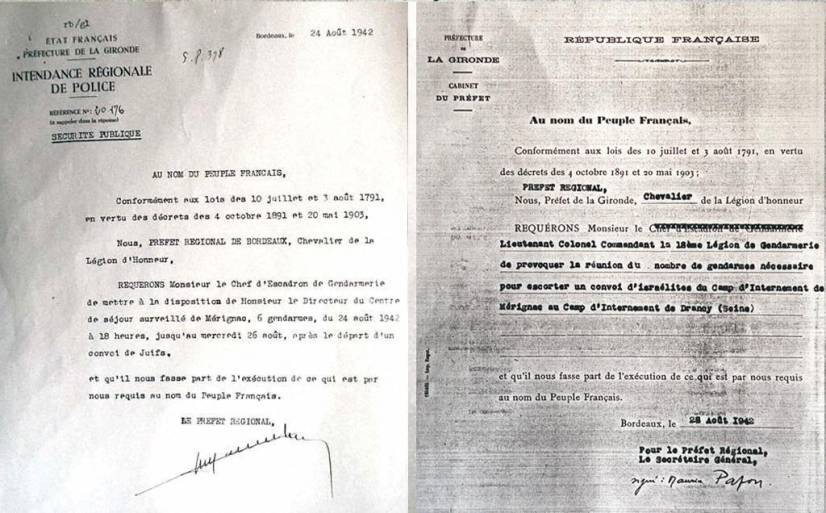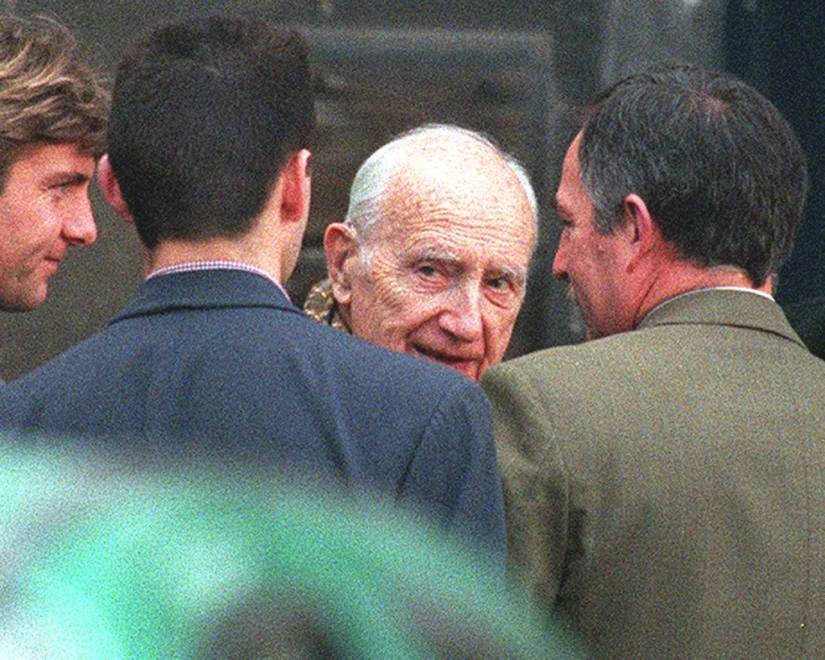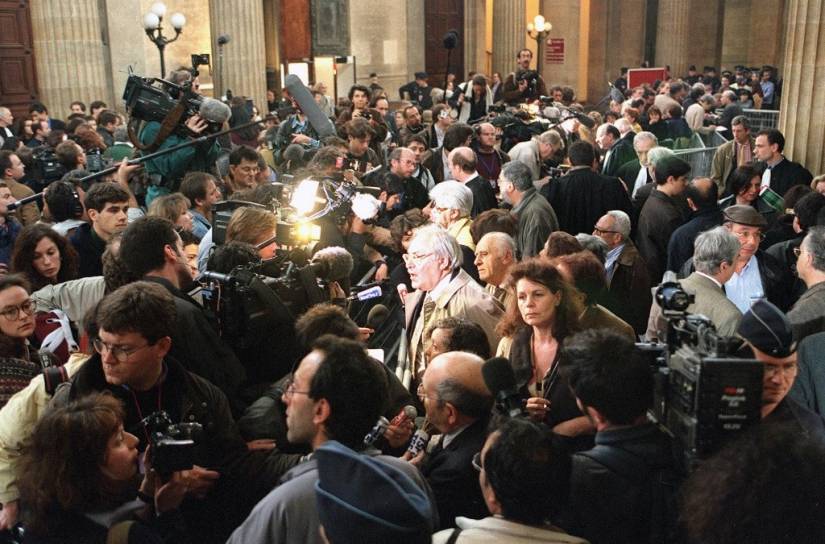With the opening of the archives of the trial of Maurice Papon, a whole section of our history during the Second World War will be enlightened.
For several years, many archives relating to the period of the Second World War have been opened before the expiry of their period of communicability, thus making possible a historical work as well as a work of memory (see our article: History, memory... how archives open to the greatest number).
With the publication of a Order of 27 January 2023, which opens in advance the archives of the trial involving Maurice Papon, charged with crimes against humanity for his participation in the deportation of 1690 Jews between 1942 and 1944, the Guard of Seals and the Minister of Culture wished extend and complete this process. Thanks to this opening of archives, it is the whole environment of an unusual process that is suddenly brought to light. Interview with Violaine Challéat-Fonck, head of the Department of Justice and Interior at the National Archives.
What is the context of the early opening of the Papon trial archives?
This decision follows a number of early opening measures concerning archives from the Second World War, including texts from the 1990s and 2000s for holdings held in departmental archives and the National Archives and, closer in time, to a 2015 decree for the funds still subject to the deadlines relating to the judicial proceedings, and to a 2017 decree relating to the opening of the archives concerning the trial of Klaus Barbie.
In keeping with the opening of these funds, it seemed interesting to provide access to archives relating to trials involving actors of the Second World War. The opening by general derogation often starts from the observation that a historical subject also presents, the time having done its work, a very important memorial and social interest. The conditions are therefore in place to make these archives available in advance and to allow the appropriation of this history by historians and by families but also by society.
What documents are concerned?
This opening concerns funds that are held in several institutions. First of all, procedural files – produced by the Cour d'assises and the Tribunal de grande instance de Bordeaux – are kept in the departmental archives of the Gironde. Then there are the files of the Ministry of Justice awaiting their transfer to the National Archives, and the holdings of the Council of State held in the Department of Executive and Legislative of the National Archives. Finally, a set of archives – collections of the cabinets of the successive Guardians of the Seals, files of the Court of Cassation, files of public action of the Directorate of Criminal Affairs and Graces at the Ministry of Justice, and files from the Advisory Committee on the Audiovisual Archives of Justice – held in the Department of Justice and the Interior of the National Archives.
What is the main contribution of this early opening?
The simplified access to these archives will make it possible to measure the environment surrounding the trial of Maurice Papon. This is a trial that has been widely publicized, but through the analysis of these archives, we will be able to study the willingness of individuals or associations to participate in the case and to influence decision-making. There are documents that allow us to measure the extent to which this extraordinary trial was governed by a millimetre organization. There are others – I am thinking in particular of the archives present in the cabinets of the Guardians of the Seals – in which we will find working documents marked by mentions, Annotations from Chief of Staff that will reflect the relationships these stakeholders have with individuals and prosecutors in relation to the Papon case. We see the treatment of all the solicitations that are addressed to the Cabinet du garde des Sceaux, and that will also allow us to imagine the mindset in which the stakeholders worked. We emphasize the urgency of certain decisions to be made, we have choices of transparency in the transmission of information during the trial... In short, making these archives more accessible will make it possible to promote historical and scientific work of all kinds on these holdings.
What do you personally remember from reading these documents?
What struck me was the extent to which such a trial leads to the production of documents of a very different nature, some of which will end up in multiple locations in the archives. There would be interesting work to be done on the links that are being forged between the archives held at the departmental archives of Gironde and those of the cabinets of the Guardians of the Seals in the direction of criminal affairs and graces. We would thus see the flow of information and the linking of interlocutors for decision-making.
In the wake of these documents, the whole story comes up—
This is particularly true for the holdings held in the departmental archives of the Gironde. For holdings which have been opened by way of derogation from the National Archives, records do not include copies of documents classified, sealed or dating from the war.
In addition to historians, everyone will be able to consult these archives…
The idea is really to provide access to as many people as possible. This possibility of accessing documents without any specific administrative approach allows any citizen who is interested in this subject to refer to the primary sources and to better understand the action taken by the public authority to have Maurice Papon’s judgment carried out. And, possibly, to be in an individual approach when his family was directly affected by the events of the Second World War.




